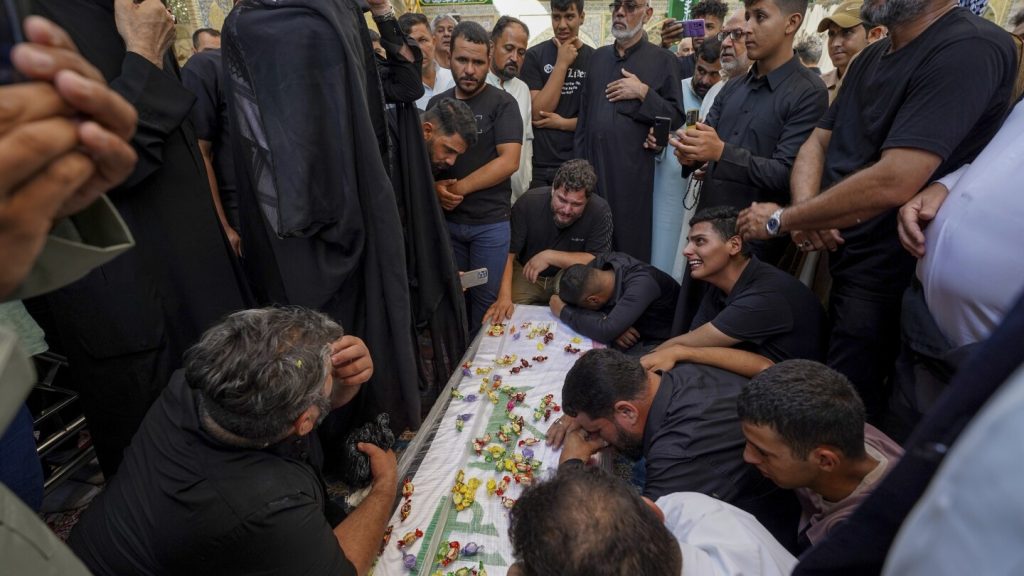Israel and Hezbollah are facing international pressure to agree to a cease-fire in order to prevent an all-out war, but both parties may be hesitant to do so. Hezbollah has suffered significant losses due to attacks on its members, while Israel has made strategic airstrikes and threats of a ground invasion in Lebanon. However, Israel’s military advantage may not be enough to achieve its goals without compromising. The United States and its allies have proposed a 21-day cease-fire to create space for diplomacy, but both sides have strong demands that may prevent a deal. Hezbollah has been launching attacks in solidarity with Palestinians following Hamas’ actions in Gaza, leading to casualties on both sides of the border.
Hezbollah has stated that it will cease its attacks if a cease-fire is reached in Gaza, where negotiations have stalled. Israel, on the other hand, may view a cease-fire in Gaza as a reward for Hezbollah’s attacks, leading to challenges in reaching a deal. Israel’s goals in Lebanon are to ensure the safe return of evacuated residents and prevent further attacks from Hezbollah. A temporary cease-fire may not be enough to reassure Israelis, and any agreement would face skepticism. The unresolved 2006 war between Israel and Hezbollah has implications for any new cease-fire agreement, as additional guarantees may be demanded by Israel.
Israeli Prime Minister Benjamin Netanyahu faces opposition from his hardline coalition partners who are against making concessions to Hamas or Hezbollah. His government could be at risk if he agrees to a cease-fire that is deemed too lenient. Iran, a key supporter of Hezbollah, has yet to express a position on the proposed cease-fire but may fear a wider conflict that could involve the United States. Meanwhile, Lebanon’s Prime Minister welcomes the cease-fire proposal but has limited power over Hezbollah. The uncertainty surrounding Iran’s stance and the consequences of a potential war on its proxy force add complexity to the situation.
The Israeli government’s response to the cease-fire proposal is divided, with hardline ministers advocating for a decisive victory over Hezbollah while opposition parties may support the agreement. Netanyahu’s future could be at risk if his government falls due to disagreements over the cease-fire terms. The international community, led by the United States, is urging both parties to consider the proposed cease-fire as a means to avoid further escalation. As the situation remains tense, the critical decisions made by Israel and Hezbollah in response to the cease-fire proposal will have significant implications for the region’s stability and security.


